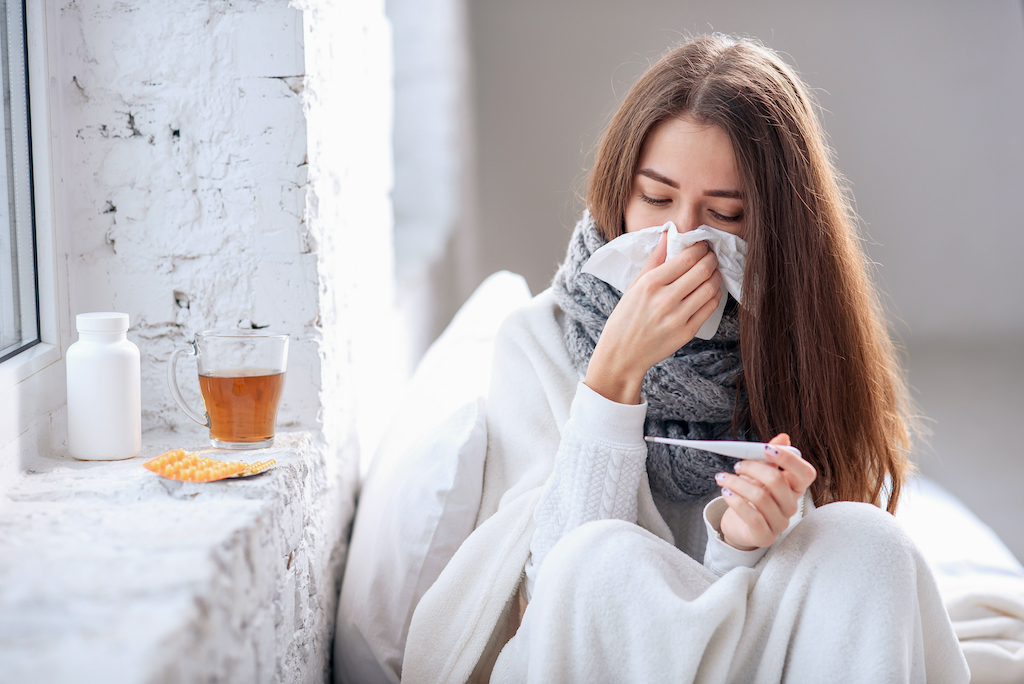 Photo Credit: Shutterstock
Photo Credit: Shutterstock
Flu season is brewing. In the United States, flu season occurs in the fall and winter. While the flu (influenza virus) does spread year-round, most of the time, flu activity peaks between December and February. What’s different about this flu season, Haute MD expert Dr. Vineet Sandhu mentioned, is that for those of 65+, the CDC is recommending the “use of higher dose and adjuvanted flu vaccines” instead of the standard options offered. This is because older adults are more likely to become severely affected by the flu than younger individuals. Additionally, according to the American Lung Association, those with chronic medical conditions, such as heart disease, lung disease, and diabetes, also have a higher risk of complications when it comes to getting sick with the flu. “In past flu seasons, nine out of 10 adults hospitalized with the flu had at least one underlying medical condition,” the American Lung Association states.
To prepare for the flu season ahead, you should:
- Sleep a sufficient number of hours. No, this does not mean going to bed at 2 am and waking up at 6 am. Not sleeping well can weaken your immune system, making you more susceptible to catching the flu.
- Eat healthy foods. A well-balanced diet boosts your immunity.
- Work out. Hit the gym. Go on a walk. Exercise is an excellent way to keep your immune system strong.
- Quit smoking. Smoking decreases your immune system’s response and can hinder your raspatory system. In addition, inhaling smoke is never a great way to stay healthy, especially during flu season.
- Stay hydrated. If this means buying a gallon jug of water to keep yourself in check, do it. By adequately hydrating your body, your body can function at its best.
 Photo Credit: Shutterstock
Photo Credit: Shutterstock
While ensuring your body is ready for the flu season ahead, you should also be receiving the flu vaccine yearly. The vaccine first becomes available in September and October. You can book an appointment online with your local pharmacy that supplies the vaccine. Though the vaccine can not prevent you from getting the flu, it will lessen the severity of symptoms if you contract it.
Typical signs and symptoms of the flu include:
- High fever
- Chills
- Cough
- Sore Throat
- Stuffy or runny nose
- Body or muscle aches
- Fatigue
- Headaches
- Vomiting
- Diarrhea
If you are experiencing any of these symptoms, it is advised to seek medical attention to be treated properly. You can also consider the alternative of meeting with a doctor such as Dr. Sandhu via telemedicine from the comfort of your own home.
For more information, visit Dr. Brian A. Levine's social media:

























